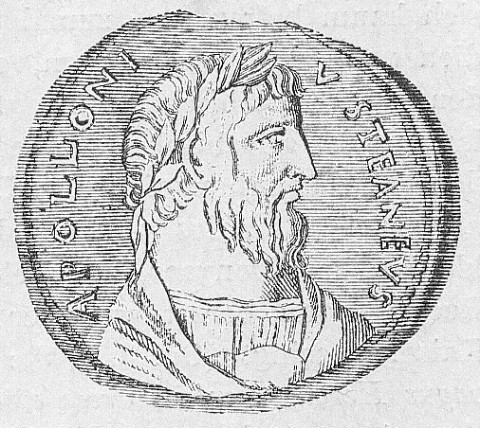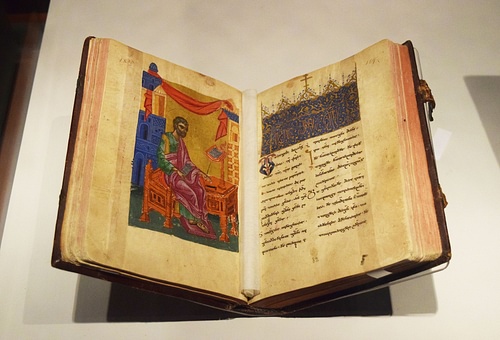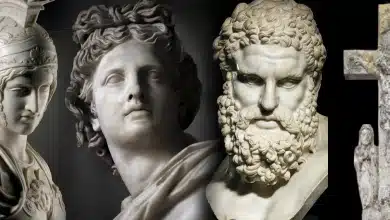Is Jesus God? The divinity of Jesus Christ between history and scripture
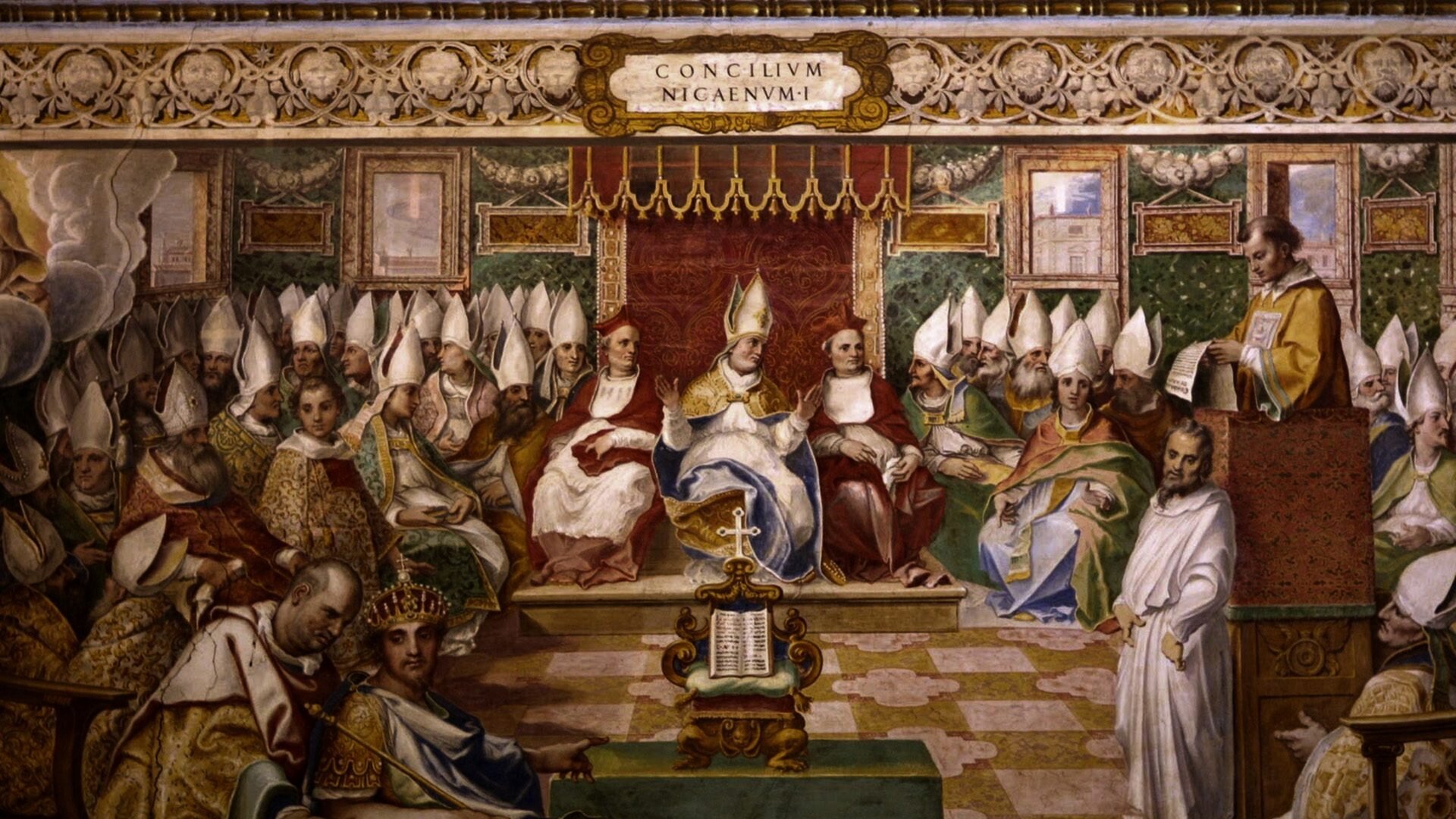
Although the Bible has been altered throughout history, it does not explicitly document Jesus claiming divinity.
This article investigates the historical background of early Christian beliefs and the development of the Nicene Creed.
By examining these historical shifts, readers will better understand how perceptions of Jesus evolved over time.
Below is a summary of the key points discussed:
- This belief is rejected by the latest divine revelation, the Quran, which affirms that Jesus never claimed to be God.
- This belief is so contrary to man’s original nature that the majority of Christians no longer believe in it today.
- The first Christians did not believe that Jesus was God.
- This idea of man becoming God or God becoming man is not new to Christianity, and it was widespread in pagan cults and even in some contemporary cults.
- In the Bible, despite the alterations it has undergone, Jesus never claimed to be God; on the contrary, it is clearly stated that Jesus was a prophet.
- That the passages interpreted in the Bible to divine Jesus are either forgeries added late or misinterpreted passages that have other meanings.
- That Jesus’ miracles or his alleged resurrection do not imply his divinity.
Jesus in the Quran: Jesus is a prophet of Allah
The Quran explicitly states that Jesus Christ was only a messenger; this fact is obvious in many passages of the Quran. According to the Quran, Jesus never said anything about God or himself that he had no right to say. He was a man and a prophet who told his followers to worship only one God, as Muslims (submissive to Allah):
Jesus, son of Mary, is only the Servant of Allah:
The miraculous birth of Jesus does not mean his divinity because if Jesus was born without a father, then Adam was born without a father or mother:
They have indeed disbelieved those who say: “Allah is the Messiah son of Mary”:
On judgment day, God will ask Jesus to answer the question: have you asked people to worship you?
52% of Christians in the USA do not believe that Jesus is God
According to a study done by the State of Theology in 2020, 52% of Christians do not believe that Jesus is God, and among evangelical Christians, the percentage was 30%; this study concluded that “These results suggest an important need to teach Christians Christology, the doctrine of the nature and identity of Jesus Christ.”

In my view, this study and its conclusion affirm an undeniable truth: when not exposed to various doctrines, a person instinctively gravitates toward the belief in one God without a son or a trinity. This brings to mind the hadith of the prophet Muhammad(ﷺ):
What the first Christians thought
In his book, The Death of Jesus, Joel Carmichael asserts that Jesus would never have thought of being considered a deity:
The idea of this new religion, with himself as its deity, was something he [Jesus Christ] could never have had the slightest inkling of. As Charles Guignebert put it, ‘It never even crossed his mind
Carmichael, Joel. The death of Jesus p. 203
When Jesus, peace be upon him, ascended, he left behind him a multitude of disciples who trusted in what he had taught them to worship God, and so the first community of Christians was formed; these Christians were not yet called Christians, but rather Nazarenes (Nasara) or Jews, for they were simply Jews who believed that Jesus Christ, a prophet of Allah, had been among them. In his book “The Nazarenes,” John Toland stated in 1718:
“Since the Nazarenes, or Ebionites, are by all the Church historians unanimously acknowledged to have been the first Christians, or those who believed him from amongst the Jews, who were his own people and apostles, with which he lived and died and witnessed his actions, considering this, I say how was it possible for them to be the first of all others (for they were made to be the first heretics), who should form wrong conceptions of the doctrines and designs of Jesus? And how did the Gentiles, who only believed in Jesus after his death from the preaching and information of people that never knew Jesus, have truer notions of doctrine and Jesus, or whence could they have their information but from the believing Jews .
John Toland, The Nazarenes (1718), p.73-76
Although we no longer have any of their own writings, and the only description we have is that of their detractors, it is known that the Ebionites and Nazarenes believed that Jesus was a man, a holy prophet of God. Toland is quite right to ask this question: how can we believe that these early believers were wrong when the later pagan converts were right about the true nature of Jesus?
This debate continued over the centuries after Jesus, to the point where even after 3 centuries, the viewpoint of a Divine Christ had not yet won the day. We know that in the 4th century, a large number of Christians were not Trinitarians; they were “Arians,” a name given by their detractors to associate them with Arius, a Berber priest who argued that Jesus was not the begotten son of God and that he was a creature of God. Arius did not invent this doctrine, but it was held by a large number of Christian priests and theologians of the time:
Arius’ teachings, in fact, were rooted in the old and honored traditions of early Christianity, including such revered figures as Origen and Lucian of Antioch, the martyr under whom Arius himself had studied. For every cleric who sided with Alexander, others of equal or greater stature sided with Arius.
Jhonatan-Kirsh , God Against The Gods: The History of the War Between Monotheism and Polytheism
The Council of Nicaea in 325 declared Arianism a “heresy”, but this did not prevent it from being the most widespread belief in Christianity to the point where Constantine, the Roman emperor who made Christianity the state religion, was baptized at the end of his life under the Arian faith by Eusebius of Nicomedia, an Arian priest.
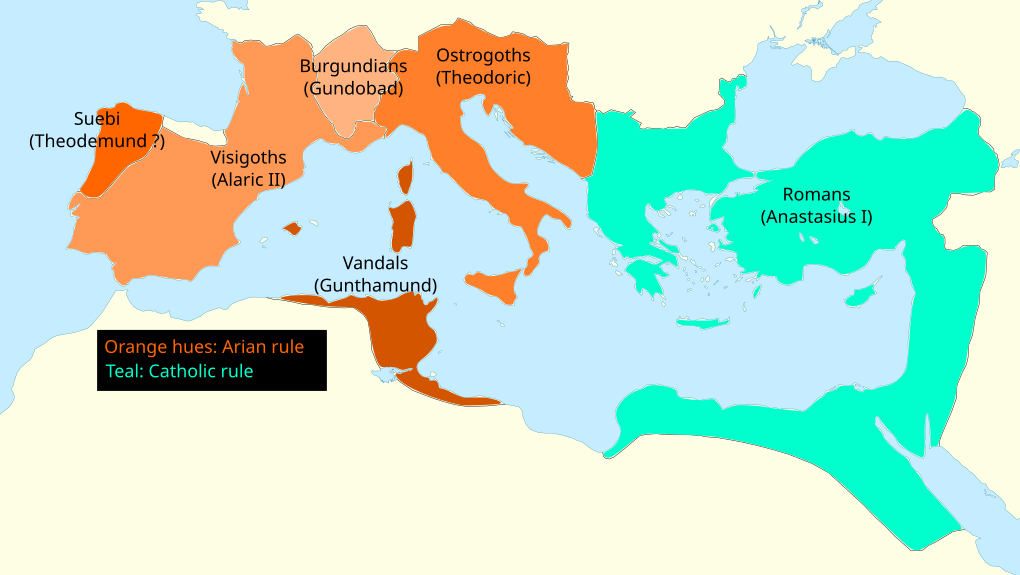
Jesus was not the first man to be elevated to divine status.
In his book “How Jesus Became God”, Bart Ehrmann confirms a fact we all know: Jesus wasn’t the first human to be deified, and this practice was commonplace among ancient peoples, he describes the mechanisms by which a man could become God:
In the ancient world it was possible to believe in a number of ways that a human was divine. Here are two major ways it could happen, as attested in Christian, Jewish, and pagan sources (I will be discussing other ways in the course of the book):
* By adoption or exaltation. A human being (say, a great ruler or warrior or holy person) could be made divine by an act of God or a god, by being elevated to a level of divinity that she or he did not previously have.
* By nature or incarnation. A divine being (say, an angel or one of the gods) could become human, either permanently or, more commonly, temporarily.
One of my theses will be that a Christian text such as the Gospel of Mark understands Jesus in the first way, as a human who came to be made divine. The Gospel of John understands him in the second way, as a divine being who became human. Both of them see Jesus as divine, but in different ways.
Bart Ehrman ( How Jesus became God)
Some years after the birth of Jesus Christ, a certain Apollonius of Tyana is said to have been born, and three centuries later, he has already taken his place among the Roman pagan deities. His principal biographer, Philostratus of Lemnos (190 – c. 230 AD), describes him as a man born with a divine promise who would then be elevated among the pagan deities.
Early in the fourth century AD, a pagan author named Hierocles wrote a book called “The Lover of Truth”, which contained a comparison between these two alleged Sons of God and celebrated the superiority of the pagan version. We no longer have this book in its entirety. But a few years after it was written, it was explicitly refuted in the writings of fourth-century church father Eusebius, sometimes known as the “father of church history”.
Apollonius and Jesus were seen as competitors for divine honors: one was a pagan worshiper of many gods, the other a Jewish worshiper of one God; one was the promoter of pagan philosophy, the other the founder of the Christian religion. Both were declared God on earth, even though both were, of course, human.
The story of Appolonius is interesting because it takes place at the same time as that of Jesus Christ, but there is no shortage of examples. Allah tells us that this mania existed among ancient peoples:
Indeed, history is full of examples of men who were elevated to divine rank by their followers and sometimes by themselves. You can see this list on Wikipedia; here’s an extract:
- Pharaohs:The Egyptians believed that when their pharaoh died, he would continue to lead them in the next life, so his burial was grand and finished to perfection – to please him in the next life and ensure his immortality to protect his people.
- Roman emperors: Following Julius Caesar who, in 42 BC, was formally deified as “the divine Julius”, Caesar Augustus now became Divi filius.
- Inca emperors: Inca emperors had a status very similar to that of Egyptian pharaohs.
- Gilgamesh was a historical king of the Sumerian city-state of Uruk. The Epic of Gilgamesh is an epic poem written in Akkadian recounting the heroic exploits of Gilgamesh[14]. The poem’s beginning describes Gilgamesh as “one-third human, two-thirds divine”.
- Imhotep (“Ἰμούθης” in Greek), whose name means “he who comes in peace”, is an emblematic historical figure of ancient Egypt. Living in the third millennium BC, he had many talents. Vizier and architect to King Djoser (3rd Dynasty), he is also said to have been a physician and philosopher. Two thousand years after his death, he was elevated to a god, becoming the god of medicine and healing. The gradual deification of Imhotep seems to have been completed around 525 BC, 2000 years after his death.
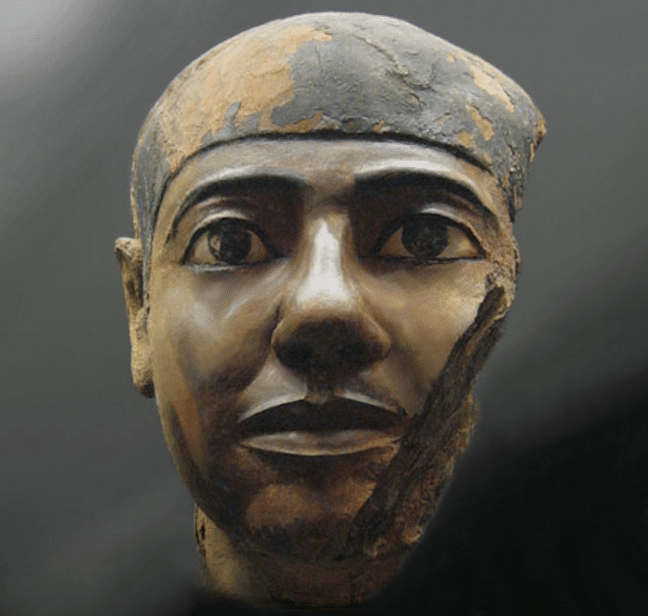
The divinity of Jesus in the Bible
So, what does the Bible say about the divinity and nature of Christ? You’d think that if Christians believe that Jesus is God, it’s because it’s expressly stated in the Bible, and no text in the Bible contradicts this. The reality is different, and if you read the following lines, you’ll see that :
- There is no clear text in the Bible on the divinity of Jesus.
- Many texts in the New Testament affirm that Jesus is only a man and a prophet.
- That the passages interpreted in the Bible to divine Jesus are either forgeries added late or misinterpreted passages that have other meanings.
The absence of proof in the Bible
If Jesus were God, we would normally expect several passages where Jesus claims to be Divine or to be God, in this regard, Bart Ehrman states:
During his lifetime, Jesus himself didn’t call himself God and didn’t consider himself God, and … none of his disciples had any inkling at all that he was God. …
Bart Ehrman ( Interview avec Npr )
On this subject, Sheikh Ahmed Deedat challenged the Swedish pastor Pastor Stanley Sjoberg to a televised debate, declaring: “I’ll put my head in a guillotine if you show me a single verse where Jesus himself says ‘I am God’ or where he says ‘Worship me’.” Deedat was too sure of himself, and the pastor couldn’t come up with a text, a challenge that is still present today. Nowhere in the scriptures is there a clear text where Jesus would affirm that he is God and that men should worship him.
Is it so difficult to bring us a clear verse like Isaiah 66:23 in which Jesus (pbuh) also says “worship me!”? Why must we deduce? If he is God or the Son of God God, then that’s his right. The Bible should be full of verses in which Jesus commands his disciples to worship him Or God commands mankind to worship his son. Where God threatens those who don’t worship his son, and so on.
The Bible overflows with these kinds of verses from God about himself and from Jesus (pbuh) about God. But there are none from Jesus (pbuh) about himself. Why is it necessary for Almighty God to ask people to worship Him, while Jesus (pbuh) is not required to do the same?
The Bible: Jesus is a man distinct from God

Numerous verses in the Bible clearly illustrate that God and Jesus Christ are two distinct beings and that Jesus is only a man.
- Jesus is a man who heard God’s truth: « But now you seek to kill Me, a Man who has told you the truth which I heard from God. Abraham did not do this. » John 8.40
- Jesus Prays to God: « Now it came to pass in those days that He went out to the mountain to pray, and continued all night in prayer to God.» Luke 6.12 et aussi Mark 1.35, Luke 5.16,Luke 6.12,Luke 9.18, Luke 11.1, Matthew 26.36, Matthew 26.39
- Jesus Prays to God and entrusts himself to his will: « He went a little farther and fell on His face, and prayed, saying, “O My Father, if it is possible, let this cup pass from Me; nevertheless, not as I will, but as You will.” Matthew 26.39
- Jesus is a prophet: “So they were offended at Him. But Jesus told them, “A prophet is not without honor except in his own country and his own house.” Matthew 13-57:58, and also Matthew:21.11 et John:4.19
- Jesus was sent by God: «But He said to them, “I must preach the kingdom of God to the other cities also because for this purpose I have been sent.” » Luke 4.43 and also John:7.28 and John:8.16
- Jesus is a man according to Paul of Tarsus: «Men of Israel, hear these words: Jesus of Nazareth, a Man attested by God to you by miracles, wonders, and signs which God did through Him in your midst, as you yourselves also know » Acts 2.22
The true nature of Jesus according to the Bible

God is Omniscient, Jesus is not!
The Bible describes God as unchanging and eternal. All His attributes are eternal because they flow from His infinite nature, whose essence is also eternal:
- [Malachie 3:6] : For I am the Lord, I do not change;
- [Psalms 102:27]: But You are the same, And Your years will have no end.
- [James 1:17] :Every good gift and every perfect gift is from above and comes down from the Father of lights, with whom there is no variation or shadow of turning
- [Psalms 93:2]: our throne is established from of old; You are from everlasting.
- [Isaïe 40:28]:Have you not known? Have you not heard? The everlasting God, the Lord, The Creator of the ends of the earth, Neither faints nor is weary. His understanding is unsearchable.
Now, if Jesus is the unchanging, eternal God of the Bible, we would expect him to have attributes and personality identical, or at least compatible, with those of God. Let’s compare Jesus and God as portrayed in the Old and New Testaments:
- God is Omniscient, but Jesus is not: « But of that day and hour, no one knows, not even the angels in heaven, nor the Son, but only the Father » Mark 13.32 , God is clearly omniscient. He knows, has known and will always know everything. Jesus, on the other hand, doesn’t have all the knowledge.
- God is Omnipotent, Jesus is not: “I can of Myself do nothing. As I hear, I judge; and My judgment is righteous, because I do not seek My own will but the will of the Father who sent Me.” John 5.30
- God is greater than Jesus : » You have heard Me say to you, ‘I am going away and coming back to you.’ If you loved Me, you would rejoice because I said, ‘I am going to the Father,’ for My Father is greater than I.» John 14.28
- Only God is Good : “Now a certain ruler asked Him, saying, “Good Teacher, what shall I do to inherit eternal life?” So Jesus said to him, “Why do you call Me good? No one is good but One, that is, God. You know the commandments: ‘Do not commit adultery,’ ‘Do not murder,’ ‘Do not steal,’ ‘Do not bear false witness,’ ‘Honor your father and your mother.’ ” Luke 18.18 ,19
- Only God’s will will be done, not Jesus’. : « He went a little farther and fell on His face, and prayed, saying, “O My Father, if it is possible, let this cup pass from Me; nevertheless, not as I will, but as You will.” » Matthew 26.39
God is independent of everything and doesn’t need to eat, drink or sleep. God doesn’t sleep, doesn’t slumber, and sleep doesn’t surprise him! Jesus Christ, on the other hand, ate, drank, slept and urinated because he was human. He suffered pain and felt emotions. This differentiates Christ from God, the Almighty. If Jesus Christ were, in fact, divine, he would not have needed to perform human actions and functions. This is what Allah Reminds us in the Quran when he says that Jesus and his mother “consumed food”:
Response to the allegation that God has become flesh
The typical way in which Trinitarians attempt to resolve this paradox is to say that when God took flesh in the form of Jesus on earth, he had a human and divine nature. The person of Jesus, therefore, had two natures so that he was both fully man and fully God. Consequently, in becoming man, God was subject to the limitations of human beings because of Jesus’ human nature. After being crucified, resurrected, and raised to God, Jesus took on a new, glorified spiritual body. Now that he has taken his place on the throne at God’s right hand, he is freed from all the limitations he had while here on earth.
This explanation raises two main problems. Firstly, how can two natures, divinity, and humanity, which have mutually exclusive attributes, exist simultaneously in a single being? The attributes of divinity are omniscience and omnipotence. The attributes of humanity include lack of knowledge and weakness. It is, therefore, absurd to claim that a single being can simultaneously possess both sets of attributes, for one cannot be both unlimited and limited, infinite and finite, at the same time.
Secondly, this explanation creates more problems than it tries to solve. You can’t have an eternal, unchanging God on the one hand and a “person” of him, Jesus, according to Christians, who changes. If Jesus assumed a dual nature, i.e., a limited human nature alongside his divine nature, while remaining God, this implies that God’s nature changed in becoming man. When Jesus ascended and put on a glorified spiritual body, while remaining God, God’s nature changed again. This contradicts the Bible’s knowledge that God is eternal and unchanging.
This theological mess indicates that the notion of Jesus as divine is a human creation. What’s more, this Trinitarian dogma became orthodox in the Church until 451 AD, at the Council of Chalcedon, more than 400 years after Jesus. If Trinitarianism is the truth, and if it is taught in the Bible as Christians claim, then why did it take so long for the dogma to be formulated and accepted?
Proof of Jesus’ divinity in the Gospels
For a subject as critical as the divinity of Jesus, it is not appropriate to discuss based on the Gospels before having established the legitimacy of these Gospels, in another article, I had detailed how the majority of scholars of the New Testament maintain that these Gospels are works of unknown :
- The Gospels are written by unknown Greek-speaking authors
- The Gospels are not eyewitness accounts
- The Gospels are theologically interpreted stories, not reliable historical testimonies.
- In the absence of oral or written tradition, the Gospels are dated according to their content
What is surprising is that the majority of indirect allusions to a possible divinity of Jesus come from the latest of the Gospels (and also the most dubious), that of John, Bart Ehrmann states in this regard:
I realized that Jesus is almost never, if ever, explicitly called God in the New Testament. I realized that some of the New Testament authors do not equate Jesus with God. I had been impressed by the fact that the words in which Jesus claimed to be God were found only in John’s Gospel, the last and most theologically charged of the four Gospels. If Jesus really did present himself as God, wouldn’t the other Gospels have at least mentioned it? Or did they simply decide to ignore this part?
Bart Ehrman how Jesus became God
That said, the author of the Gospel, according to John, certainly did not believe that Jesus was God, this belief having developed over the following centuries, which is why even when reading his Gospel, the passages where he wishes to defend the divinity of Jesus remain highly interpretable and can in no way serve as a basis for believing that Jesus is God.
Some passages of the New Testament were modified to stress more precisely that Jesus was himself divine.
Metzger, Bruce M. and Ehrman, Bart D. The Text of the New Testament: Its Transmission, Corruption, and Restoration. p. 286
Interpreted passages for Saying that Jesus is God
God was made flesh

One of the passages long used to explain that God would have become incarnate is 1 Timothy 3:16
And without controversy great is the mystery of godliness: God was manifested in the flesh,Justified in the Spirit,Seen by angels,Preached among the Gentiles, Believed on in the world,Received up in glory.
1 Timothy 3:16
the phrase “God was manifested in the flesh” can be found in several Bibles, such as the Martin, Darby, and King James. however, this passage is an altered version of “he who was manifested in the flesh” to prove the doctrine of the incarnation, the passage was altered in certain ancient biblical manuscripts, as confirmed by the historian Edward Gibbon:
This strong expression might be justified by the language of St. Paul, (1 Tim. iii. 16;) but we are deceived by our modern Bibles. The word
Edward gibbon L’histoire du déclin et de la chute de l’empire romain(which) was altered to
(God) at Constantinople in the beginning of the vith century: the true reading, which is visible in the Latin and Syriac versions, still exists in the reasoning of the Greek, as well as of the Latin fathers; and this fraud, with that of the three witnesses of St. John, is admirably detected by Sir Isaac Newton. (See his two letters translated by M. de Missy, in the Journal Britannique, tom. xv. p. 148 – 190, 351 – 390.) I have weighed the arguments, and may yield to the authority of the first of philosophers, who was deeply skilled in critical and theological studies.
In a chapter entitled “Theologically Motivated Alterations of the Text” in his book Misquoting Jesus, Professor Ehrman elaborates on the corruption of 1 Timothy 3:16, which was detected not only by Sir Isaac Newton but also by the eighteenth-century scholar Johann J. Wettstein. Ehrman wrote as follows:
A later scribe had altered the original reading, so that it no longer read “who” but “God” (made manifest in the flesh). In other words, this later corrector changed the text in such a way as to stress Christ’s divinity. It is striking to realize that the same correction occurred in four of our other early manuscripts of 1 Timothy, all of which have had correctors change the text in the same way, so that it now explicitly calls Jesus “God.
Ehrman, Bart D. Misquoting Jesus. p. 157
The Son of Man in heaven
We read in John 3.13 :
No one has ascended to heaven but He who came down from heaven, that is, the Son of Man who is in heaven
John 3.13
In contrast, the NIV and ESV omit the phrase “who is in heaven,” adhering to the shorter Alexandrian text found in Papyrus 66, Papyrus 75, Vaticanus, and Sinaiticus, as well as specific Egyptian versions and some early church writers.
In his Textual Commentary on the Greek New Testament, the late Bruce Metzger supported the choice made by the compilers of the United Bible Societies’ printed Greek New Testament to exclude this phrase: “The majority of the Committee, impressed by the quality of the external attestation supporting the shorter reading, regarded the words ὁ ὢν ἐν τῷ οὐρανῷ as an interpretive gloss, reflecting later Christological development.”
Before Abraham was, I am
We read in John:
Jesus said to them, “Truly, truly, I say to you, before Abraham was, I am.”
John 8.58,
this statement was probably never uttered by Jesus, Adrian Thatcher wrote:
“There is hardly a competent New Testament scholar who is prepared to defend the view that the four occurrences of the absolute use of “I am” in John, or indeed most of the other uses, can be historically attributed to Jesus.”
Adrian Thatcher, Truly a Person, Truly God (Londres : SPCK, 1990) p.77
But even if we assume that Jesus would have said this, once again, “I am” does not mean “worship me! The fact that Jesus (pbuh) may have been present before Abraham (pbuh) does not mean his divinity , What then would we say of Solomon (Proverbs 8:23) :
Ages ago I was set up, at the first, before the beginning of the earth.
Proverbs 8:23
As for Melchizedek, who is without father, without mother, without genealogy, who has neither beginning of days nor end of life, -but who is made like the Son of God, -this Melchizedek remains a priest forever.(Hebrews 7:3),
They were not only present before Abraham (pbuh), but also before all creation? Regarding comparing “I am” in the Exodus verse with that of John, please note that just because the English translation of these verses is done so that they become the exact English words does not mean that the original words are the same.
The first is the GREEK word eimi {i-mee’}, while the second is the Hebrew word hayah {haw-yaw}. While both can be translated into English to mean the same thing, they are two distinctly different words. The same Greek word is translated as “It is I” in Matthew 14:27 and simply as “I” in Matthew 26:22 …etc. Notice how people are led in a chosen direction of faith through selective translation? Remember also that Jesus (pbuh) did not speak GREEK. Show us his real words.
The Father is in me, and I am in the Father
We read in John 10.38:
But if I do, though ye believe not me, believe the works: that ye may know, and believe, that the Father is in me, and I in him
John 10.38
Claiming this as evidence of Christ’s divinity is a flimsy argument that can be easily overlooked: Christ also stated that the apostles reside in him, and he in them:
At that day ye shall know that I am in my Father, and ye in me, and I in you.
John 14.20
I in them, and thou in me, that they may be made perfect in one; and that the world may know that thou hast sent me, and hast loved them, as thou hast loved me
John 17.23
This isn’t a real incarnation, as that would imply the apostles are also divine.
He who has seen me has seen the Father
We read in John 14:9 :
he that hath seen me hath seen the Father
John 14:9
To say that this is an argument for the divinity of Christ is to put forward contradictions with Christian dogma. In fact, Christians agree with us that it is by no means possible to see God, because God is not a body, the idea is merely parabolic, and this is a similar example:
He that heareth you heareth me; and he that despiseth you despiseth me; and he that despiseth me despiseth him that sent me.
Luke 10.16
I am not of this world
And he said unto them, Ye are from beneath; I am from above: ye are of this world; I am not of this world.
John 8:23
On dit que ceci est loin d’être une preuve de divinité ce qui est facile a démontrer par la parole même du christ:Jésus dit aussi aux apôtres qu’ils ne sont pas de ce monde:
If ye were of the world, the world would love his own: but because ye are not of the world, but I have chosen you out of the world, therefore the world hateth you
John 15.19
Christ’s statement that he is not of this world means that he is not among those who hope for this life here below and that what interests him is the hereafter.
The miracles of Jesus do not imply his divine nature.
Christians claim that Jesus’ miracles are proof of his divinity, but miracles cannot be proof of divinity for two simple reasons:
- These miracles were performed by the will of God for the simple reason that they were performed by the will of God, as we read in Acts 2.22: “Ye men of Israel, hear these words; Jesus of Nazareth, a man approved of God among you by miracles and wonders and signs, which God did by him in the midst of you, as ye yourselves also know.”
- Similar miracles were performed by prophets before Jesus, and some were performed by the prophet Muhammad(ﷺ), here are some examples of these miracles :
- Jesus raises Lazarus from the dead: John 11:41-44
- Elijah brings a child back to life. : 1 Kings 17:21-23.
- Elisée Resuscitates a woman’s son: 2 Kings 8:5
- Jesus walks on water: Matthew 14:25-26
- Moses split the sea in two: Exodus 14:21-22
- Prophet Muhammad split the moon :SEE SAHÎH AL-BOUKHÂRÎ, VOL.4, HADÎTH N.831 ).
- Jesus gives sight to two blind men: Matthew 9:27-30
- Elisha gives sight to a blind man:2 Kings 6:15-17
- Prophet Muhammad(ﷺ) healed Ali’s eye before the battle of Kaybar (BUKHARI, FADA’L AL-SAHABA, 9; MUSLIM, FADA’IL AL-SAHABA, 34.)
- Jesus heals a leper: Luke 17:12-4
- Elisha heals Naaman:2 Kings 5:13-14
- Jesus multiplies food: Matthew 14:15-21
- Elisha multiplied the food: 2 Kings 4:42-44
- Prophet Muhammad(ﷺ) multiplies food: REPORTED BY BUKHARI, AT�IMA, 6; MUSLIM, ASHRIBA, 175
- Prophet Muhammad(ﷺ) multiplied water: Reported by Sahîh Al-Boukhârî, Vol.7, Hadîth N.543
Muslims believe that Jesus performed many miracles, they even believe in miracles that Christians do not know, such as talking in his cradle or resurrecting birds, but Allah clearly says in the Quran that these are miracles performed by the will and power of Allah:
The Resurrection

Christians believe that Jesus was raised from the dead as a sign of divinity, but this cannot be proof of divinity for the simple reason that Jesus is not the only one to have been resurrected, as Lawrence Brown states in his book Misgoded:
With regard to the alleged divinity of Jesus, none of these points matter. Even if the crucifixion were true, Jesus being raised from the dead would not imply divinity any more than it would for the children raised through the prayers of Elisha, the dead man revived through contact with Elisha’s bones, or Lazarus resurrected at the hands of Jesus.
For that matter, God promises to raise all humankind come the Day of Judgment—what will that make us?
Lawrence Brown Misgoded
Muslims believe that Jesus was never crucified on the cross and that the resurrection never took place. This belief – shared with many other Christians in the past – is supported by the message of the Quran as well as by analysis of the text of the Gospels. (voir l’article à ce sujet , jésus fut il crucifié ):
- Recently discovered ancient manuscripts prove that the question of Jesus’ crucifixion was highly controversial and that there were groups of Christians who believed that Jesus was crucified only in appearance and that he was substituted.
- No “canonical” sources found in the New Testament today come from eyewitnesses to the event; the gospels and letters were written by authors who never saw Jesus nor witnessed the crucifixion but simply reported the events as they were handed down to them.
- Major discrepancies in detail exist between the accounts in the four Gospels, casting doubt on their accuracy.
- In the accounts of the crucified man, we find a bizarre and contradictory attitude, which suggests that the crucified man himself was not in control of what was happening to him and that contrary to the image intended by the gospel writers, they reported what they said.
- God would not have allowed his prophet to be crucified. Crucifixion is an atrocious death , and the person receiving it is worthy of God’s curse ( Deuteronomy 21-23).
- The Quran, which is God’s last revelation to mankind, clearly affirms that Jesus was neither killed nor crucified and that Allah raised him to Him crucified:
Forgiving sins
We read in Mark 2:
When Jesus saw their faith, he said unto the sick of the palsy, Son, thy sins be forgiven thee. But there were certain of the scribes sitting there, and reasoning in their hearts, Why doth this man thus speak blasphemies? who can forgive sins but God only? And immediately when Jesus perceived in his spirit that they so reasoned within themselves, he said unto them, Why reason ye these things in your hearts? Whether is it easier to say to the sick of the palsy, Thy sins be forgiven thee; or to say, Arise, and take up thy bed, and walk? But that ye may know that the Son of man hath power on earth to forgive sins, (he saith to the sick of the palsy,) I say unto thee, Arise, and take up thy bed, and go thy way into thine house. And immediately he arose, took up the bed, and went forth before them all; insomuch that they were all amazed, and glorified God, saying, We never saw it on this fashion.
Marc 2:6-12
If Christianity believes that forgiveness of sins is a sign of divinity, then what about the millions of Christian clergy who accept people’s sins. Christian clergy who accept people’s “confessions” and “forgive” their sins? Are they all God’s offspring and part of the Trinity? Do they call God on the phone and ask his permission to forgive each individual, or do they have “the power to forgive sins”? Sanders points out that this cannot be proof of divinity and that Jesus was merely reporting the fact that God had forgiven the sin of the person concerned:
The oft-repeated claim that Jesus ‘put himself in the place of God’ is overdone. He is often said to have done so in forgiving sins;36 but we must note that he only pronounced forgiveness, which is not the prerogative of God, but of the priesthood.
Sanders, Jesus and Judaism (1985), p.240
Muslims believe that a Muslim is rewarded for every trial he endures during his life. and that every trial endured is used by Almighty God to wipe out a previous sin of that individual. Even something as simple as a pinprick is counted towards this end.
How much more significant is the reward for a man who has endured paralysis. His reward may well be the forgiveness of all his sins.
In “The Five Gospels,” written by 24 Christian scholars from some of the most renowned American and Canadian universities, we read on pcage 44:
Stories of Jesus curing a paralytic are found in all four narrative gospels, The Johannine version (John 5:1-9) differs substantially…The controversy interrupts the story of the cure- which reads smoothly if one omits vv. 5b-10 (Mark 2)- and it is absent in the parallel of John… Scholars usually conclude, on the basis of this evidence, that Mark has inserted the dispute into what was originally a simple healing story…If the words are to be attributed to Jesus, v. 10 may represent a bold new claim on Jesus’ part that gives the authority to forgive sins to all human beings…The early church was in the process of claiming for itself the right to forgive sins and so would have been inclined to claim that it’s authorization came directly from Jesus.
The 5 Gospels P44

